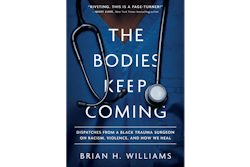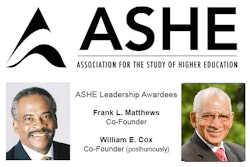Purported to be the first-ever state-based reference history of African-Americans, The Kentucky African-American Encyclopedia (KAAE) chronicles a sweeping tapestry of Black Kentucky history from the state’s frontier era to the present. With a publication date of August 28, the encyclopedia became available for purchase earlier this month by its publisher, the University Press of Kentucky.
Within the 551-page volume that includes 1,155 article entries, readers will encounter trailblazers, ranging from Captain Jack Hart, a slave and scout who explored the Kentucky frontier with Daniel Boone in the 1770s; world renowned boxer and Louisville native Muhammad Ali; to Mae Street Kidd, an outspoken civil rights advocate and among the first Blacks elected to the Kentucky House of Representatives.
“I think what the volume does very distinctly is reveal what African-Americans did for themselves within their own respective worlds and spheres of influence,” said Dr. Gerald L. Smith, one of three general editors who led the encyclopedia project and a historian at the University of Kentucky.
“What we tried to do is to really reach outside the bounds of traditional narrative of Kentucky history in order to capture the hidden and forgotten stories that were significant not only in the making of Kentucky history but American history as well,” noted Smith, who is the Martin Luther King Jr. Scholar in Residence and Theodore A. Hallam Professor in the University of Kentucky history department.
Along with Smith, Dr. Karen Cotton McDaniel and Dr. John A. Hardin led a University of Kentucky-based team that included 16 editorial staff members, and it worked with 150 writers to complete the encyclopedia over seven years. As a new release, the book has already won acclaim by capturing the 2015 Thomas D. Clark Medallion, which honors the book most noted for excellence in documenting Kentucky history.
“What we have is a single volume on Kentucky African-Americans looking at institutions, people, events, politics, business, women’s issues, religious issues—it does everything from A to Z,” said Hardin, a history professor and former dean at Western Kentucky University.
“One of the goals the general editors and I pursued was to jumpstart the research agenda for the academics but at the same time help the K-12 [teachers and students] get their hands around the African-American experience in the commonwealth of Kentucky,” he added.





















